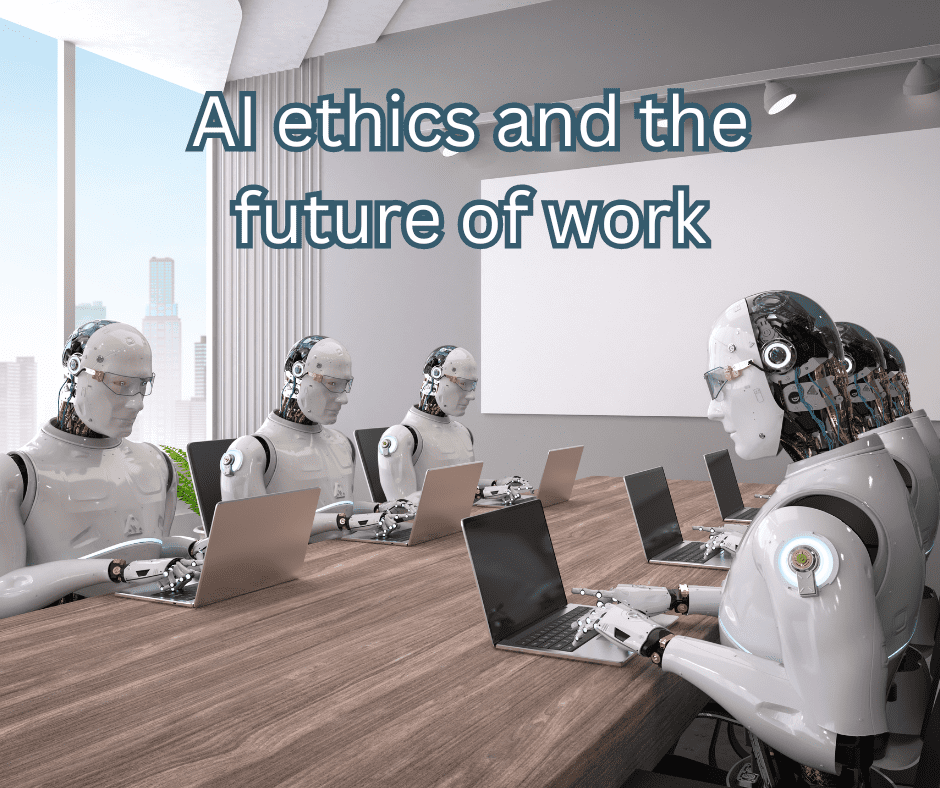Artificial Intelligence (AI) has become an integral part of our lives, revolutionizing various industries and transforming the way we live and work. However, as AI continues to evolve and become more sophisticated, it has also raised important ethical concerns and sparked discussions about its potential impact on job displacement. In this blog post, we will explore the ethical implications of AI and its potential effects on the future of work.
The Ethical Implications of AI
As AI technologies advance, it is crucial to consider the ethical implications they bring. One of the key concerns is the potential bias in AI algorithms. AI systems are trained on vast amounts of data, and if this data contains biases, the algorithms can unintentionally perpetuate and amplify these biases. This can lead to unfair and discriminatory outcomes in areas such as hiring, lending, and criminal justice.
Another ethical concern is the issue of privacy. AI systems often collect and analyze massive amounts of personal data, raising questions about data protection and privacy rights. Striking the right balance between utilizing data for AI advancements and safeguarding individuals’ privacy is a complex challenge that requires thoughtful consideration and regulation.
Transparency and accountability are also important ethical considerations in AI. As AI systems become more complex and autonomous, it becomes crucial to understand how they make decisions and ensure that they can be held accountable for their actions. The lack of transparency in AI algorithms can make it difficult to identify and address potential biases or errors.
The Future of Work in an AI-driven World
AI has the potential to automate repetitive and mundane tasks, leading to increased efficiency and productivity. However, this also raises concerns about job displacement. Some fear that AI will replace human workers, leading to widespread unemployment and economic inequality.
While it is true that AI can automate certain tasks, it is important to note that it also creates new opportunities and job roles. AI can augment human capabilities, allowing workers to focus on more complex and creative tasks. It can enhance decision-making, provide valuable insights, and improve overall productivity. Therefore, rather than replacing jobs, AI has the potential to reshape and redefine them.
However, it is essential to ensure that the benefits of AI are distributed equitably. This requires proactive measures such as upskilling and reskilling programs to help workers adapt to the changing job market. Governments, organizations, and educational institutions need to collaborate to provide the necessary training and support to enable individuals to thrive in an AI-driven world.
The Role of Ethical AI Development
Addressing the ethical implications of AI and mitigating the potential impact on the future of work requires a collaborative effort. Ethical AI development is crucial to ensure that AI technologies are designed and deployed responsibly.
One approach is to incorporate ethical considerations into the design and development process of AI systems. This involves promoting transparency, fairness, and accountability in AI algorithms. It also requires diverse and inclusive teams working on AI development to minimize biases and ensure a broad perspective.
Regulations and guidelines are also important in shaping the ethical use of AI. Governments and regulatory bodies play a crucial role in establishing frameworks that protect individuals’ rights, ensure data privacy, and prevent discriminatory practices. These regulations should be flexible enough to accommodate the rapid advancements in AI while providing clear ethical boundaries.
Conclusion
The ethical implications of AI and its potential impact on the future of work are complex and multifaceted. While AI brings immense opportunities and benefits, it also poses challenges that need to be addressed proactively.
By embracing ethical AI development, fostering collaboration between various stakeholders, and implementing thoughtful regulations, we can navigate the evolving AI landscape responsibly. This will ensure that AI technologies are harnessed for the greater good, while minimizing potential biases, protecting privacy, and creating a future of work that is inclusive and equitable.
